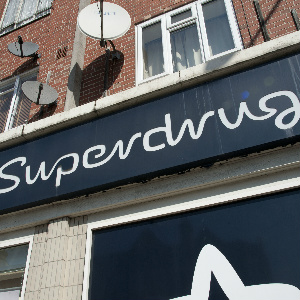Patients scramble to self-prescribe ‘cancer-preventing’ aspirin as pharmacy sales soar

Exclusive Pharmacies have reported big hikes in aspirin sales in the past week after UK academics called for people in late-middle age to start taking daily doses of the drug to prevent stomach and bowel cancer, Pulse has learnt.
Health retailer Superdrug reported a doubling in the amount of low-dose aspirin sold last week in its stores, recording a 229% increase in sales on the preceding week.
The figures came as UK experts claimed the benefits of taking a low dose of aspirin daily to prevent stomach and bowel cancer outweigh any risks for most people aged 50-65.
The researchers had warned there were still some doubts regarding the evidence – in particular over what dose should be taken and for how long – and advised people to consult their GP before choosing to self-prescribe aspirin.
But one Superdrug store in Bolton last week reported a massive 500% increase in sales after the announcement, a finding reflected by a big jump in national sales of 75 mg aspirin across Superdrug stores nationally compared with the previous week – and a 400% increase in the London region.
A spokesperson for Superdrug told Pulse: ‘Aspirin sales were up 229% nationally week on week, on aspirin 75mg last week in comparison to the week before. In London sales were up 400% week-on-week.’
Elsewhere independent chain LloydsPharmacy told Pulse they had noticed a smaller but still marked increase in sales nationally, with a 27% increase in the volume of sales compared with the same week last year, and a 36% increase in volume compared with the preceding week.
Related stories
Benefits of aspirin a day for cancer prevention in middle-aged people ‘outweigh harms’
GPs told to review aspirin use in patients with atrial fibrillation
Aspirin for primary prevention in diabetes ‘should be restricted’
Boots declined to share information on its aspirin sales while Day Lewis, Morrisons and Whitworth said they had not seen a big change in the overall pattern of sales.
GP leaders stressed there is still not enough evidence to recommend anyone takes aspirin routinely for cancer prevention – but said it was more appropriate for the public to consult their local pharmacist about the pros and cons, rather than visiting over-stretched GPs.
Dr Andrew Green, chair of the GPC clinical and prescribing subcommittee, said: ‘I would be encouraging people to have a chat with their pharmacist about it rather than their GP. Whether someone should be taking aspirin or not is well within the pharmacists’ competence.’
He added: ‘The advice from a GP I would suggest is at the moment is we don’t have enough evidence to recommend it for everybody. If a patient wants to disregard that and take it then they should still get some advice – but the pharmacist can advise them if there is anything in their past medical history or their current prescriptions that means they shouldn’t take aspirin.’
Dr Richard West agreed that while people should get advice before deciding to take aspirin, consulting a GP may not be necessary.
Dr West said: ‘It’s a difficult balance – there are undoubtedly some risks from taking it and therefore it is worth discussing it with an appropriate healthcare professional beforehand.
‘However, as we know general practice is under a lot of pressure at the moment and therefore if a pharmacist felt capable of giving that advice then I think that would be perfectly appropriate.’
A spokesperson for the Royal Pharmaceutical Society said: ‘Pharmacists are well practiced in dealing with requests for treatments following a big media story. The links between cancer prevention and aspirin are not new but as yet haven’t lead to a change in indication or licence of aspirin.
‘Although aspirin is often portrayed as a wonder drug, it can cause serious harms, especially in people with pre-existing conditions such as stomach ulcers.’

Visit Pulse Reference for details on 140 symptoms, including easily searchable symptoms and categories, offering you a free platform to check symptoms and receive potential diagnoses during consultations.











